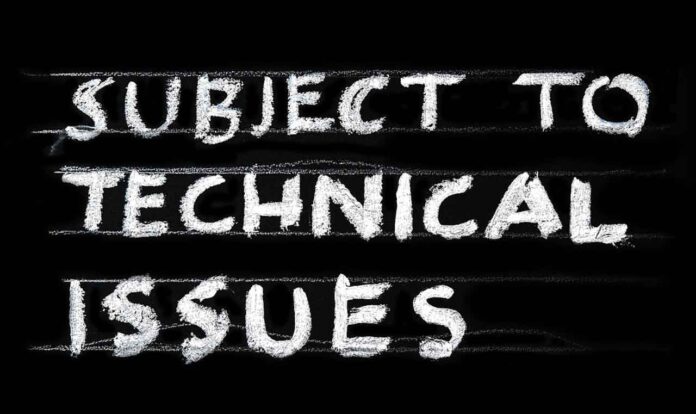It used to seem so simple …..
Despite signs of early promise and reassurances that Alberta’s online commercial market would launch during 2024 and then by the end of the year, the chances of a Christmas miracle are now looking vanishingly unlikely for Albertans looking for an alternative to Play Alberta or the offshore market.
At the recent Global Gaming Expo held in the world’s gambling capital, Las Vegas, Alberta, was one of the hot topics of conversation between delegates. Texas, California and Florida might be potentially more lucrative markets for international operators, and lobbyists might be hard at work to persuade lawmakers in those states, but Alberta has crossed the approval threshold.
All that remains is for the regulatory framework to be laid out. With Ontario as a model, the province had suggested it should all be relatively straightforward. However, to date, there is no definitive opening date.
So, what is causing the delay? Ontario had done the legwork and produced a blueprint other provinces could follow; Albertans are keen gamblers, so what is the holdup?
On the face of things, it looked like due process just needed to be followed to draw up the right policies, appoint a regulator, and develop safeguards.
The province already had the experience of offering gambling services through the publicly owned PlayAlberta website, and the international operators were queueing up to access the market. What else was needed to allow players to hunt out their favourite high-stakes or 1$ deposit casino and settle down for a good night’s entertainment?
Not so simple now
One of the driving forces behind establishing a regulated market is player protection and getting gamblers away from offshore sites. The fact that the province could earn significant revenues from the operators was also something not to be sniffed at. Casinos also donated considerable funds to good causes, so there was a good feeling about this.
One of the reasons for having one single, integrated market was to cut red tape. The minister in charge is Dale Nally, Alberta’s Service and Red Tape Reduction Minister. However, it seems the minister has gotten tangled in some red tape of the province’s own making.
At a panel meeting held during the Global Gaming Expo, Nally explained that the province is still sorting out some issues and reviewing the exact mechanics of how the market would function. He did say that he hoped to have a much more positive announcement about an “open and free market in Alberta’ by the time of next year’s event.
The devil is in the detail
While having experience running a publicly owned online gambling site has given Alberta a good insight into what is popular and what is not, it is also one of the stumbling blocks. While Ontario was able to target all online gamblers and bring them to the new commercial market, Alberta will not want to kill its golden goose while it draws people away from the gray market.
In addition, who will regulate the market? It would seem unfair for PlayAlberta to regulate the commercial operators as its commercial arm would directly compete with the sites it was tasked with regulating. This means that a new system of regulation needs to be created.
Alberta makes $1.5 billion in gambling revenue from the publicly owned gaming site and will not want to lose this. Play Alberta accounts for 45% of the province’s iGaming share, and the government wants to shift the 55% playing elsewhere onto sites licensed sites that offer residents protections and pay revenues into the provincial coffers. Right now, all that money flows offshore. The conundrum is how to get a market large enough to be competitive – commercial operators are keen to target all Albertan gamblers.
Commercial operators are attracted to investing in the province as Canada’s wealthiest residents reside here, but it has less than a third of Ontario’s population. If operators are restricted to only being able to market to half the gambling populace, it might look like a much less attractive market than initially envisaged. This means the launch has been pushed into 2025 and might not even happen until much later in the year.
Buying time
Nally admitted they had encountered some unanticipated problems and wanted more time to consult with stakeholders. He acknowledged that this was disappointing for players, and operators said it reflected the province’s commitment to getting it right the first time.
Stakeholders who have expressed concern include Alberta’s Charitable Casino Operators. ACCO’s Michael Thompson explained that charitable casinos generated $255 million for good causes in Alberta in 2022-2023. The revenues that go to charities are completely dependent on revenues from private casino providers. He believes that the Ontario and Alberta markets are very different, meaning a cut-and-paste approach is not feasible.
He said,”We think the Ontario model will be very damaging to casinos in Alberta, and charities will lose out significantly as a result. We think that’s going to be a disaster, and they need to take the time to get it right.”
As Albertan casino operators pay the highest tax rate in Canada, Thompson says it will be impossible for them to compete with the regulated iGaming operators. Land-based casinos are currently taxed at 83%, but Ontario taxes iGaming companies 20%. However,
“We’ve been asking the government to make modest adjustments to the tax structure of the land-based casinos so they can use additional monies to invest in their facilities and be more competitive. The tax structure has to be dealt with first. We think the government is selling the farm”.
Thompson says Alberta’s land-based casinos are taxed at 83 percent, compared to the 20 percent iGaming companies are charged in Ontario. However, there are no plans to require iGaming companies to make charitable donations, so everyone is waiting to participate in consultations to ensure traditional and indigenous operators do not lose out.
Listen and learn
Nally claims that the key to success is to build a market that benefits everyone, and that Alberta is taking the time to get it right, listen to feedback and tweak its strategy. As demonstrated, while the Ontario model has been successful for Ontario, it cannot just be imported wholesale as a turn-key iGaming market model.
While the delay might frustrate players and commercial operators, Nally is keen to stress that the province is committed to launching its commercial iGaming market. Alberta is now being cautious after being somewhat bombastic earlier in the year. In the long-term benefits should outweigh the short-term frustration.






